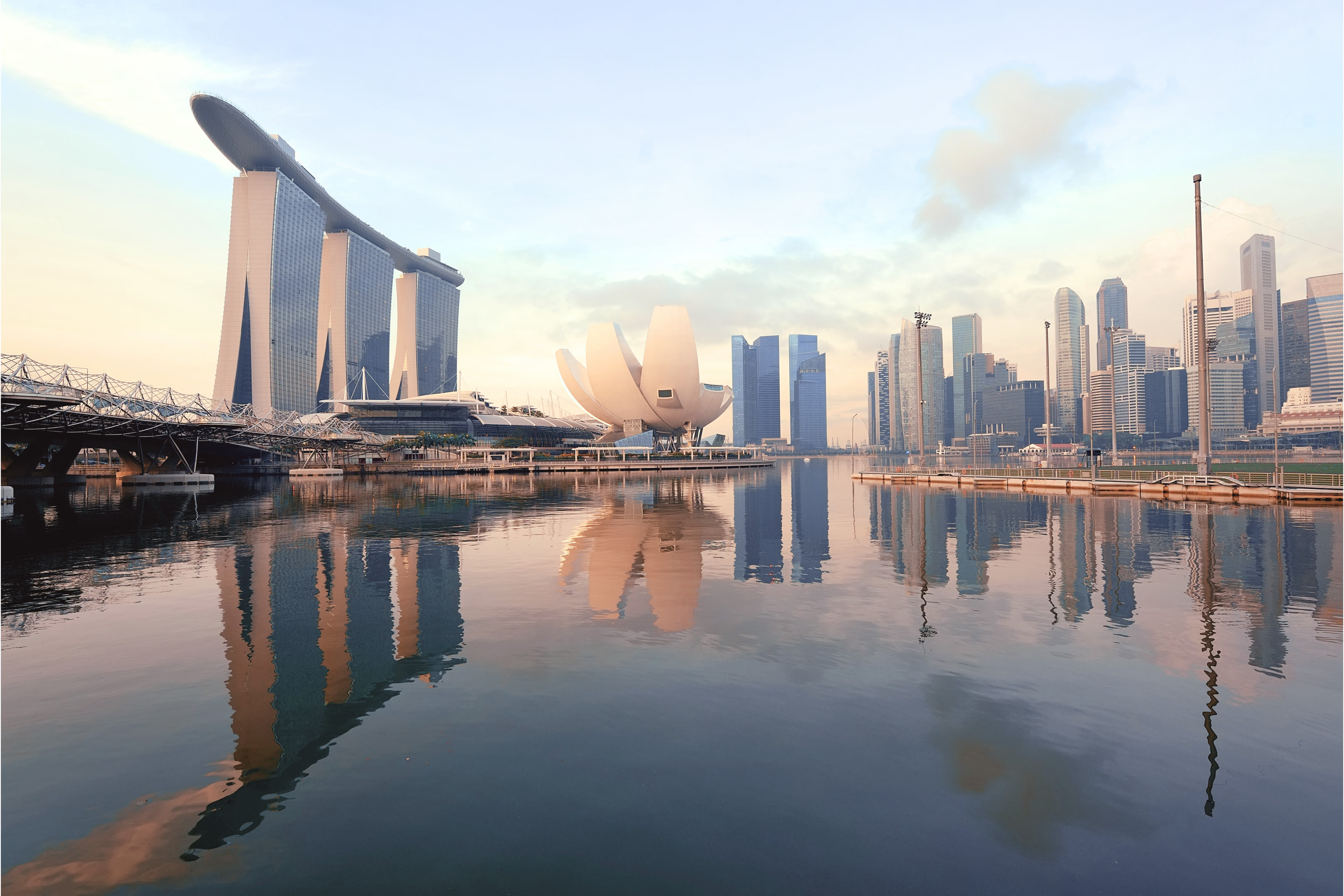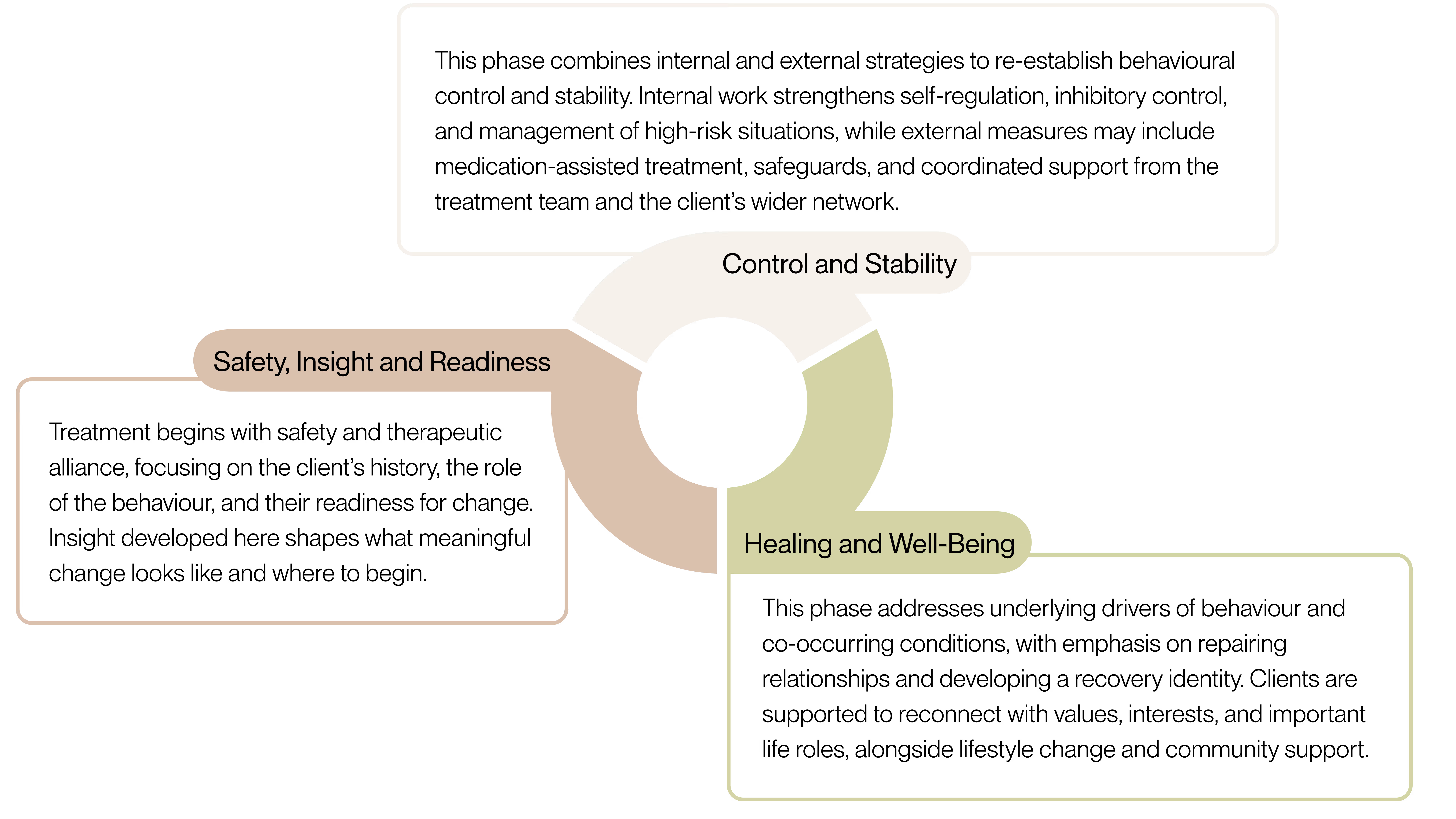Referring to The Winslow
.avif)
We provide residential treatment, followed by an intensive outpatient programme, for adults who are:
- Experiencing substance use and/or behavioural addictions, including co‑occurring mental health conditions
- Medically and psychiatrically stable for non‑hospital care
- Low to moderate risk to themselves or others
- Able to provide informed consent and communicate fluently in English
- Ready to engage in treatment and follow programme expectations and policies
Our centre accommodates up to 26 residential clients at any one time, with up to 10% of places reserved on a not‑for‑profit basis for referrals through Singapore’s National Addiction Management Service (NAMS).

Why referrers choose Singapore

- Safe and regulated
Singapore’s Ministry of Health (MoH) licenses and audits healthcare services to ensure robust standards for client safety and clinical quality.
- Expert, culturally competent care
We have access to leading institution-trained clinicians with extensive experience treating diverse, international clients.
- Private and discreet
A country with strong legal protections and a private healthcare sector known for high-profile client confidentiality.
- Access and continuity
Singapore is a major Asia-Pacific travel hub with strong links to international providers for seamless aftercare.
- World‑class medical care
Our location in Singapore offers peace of mind: if hospital or specialist care is needed, clients have access to one of the world’s most trusted healthcare systems.
Additional advantages for clients already in Singapore
- Integration with daily life
Staying in Singapore allows treatment to take place in the context of clients’ existing lives - family can be involved, essential work touchpoints can continue, and hobbies and interests remain accessible, within clear clinical boundaries.
- Continuity of care
Clients can begin working with locally-based therapists and outpatient providers during their stay and continue with them after discharge, ensuring seamless ongoing support.
- Sustainable recovery networks
We connect clients to peer recovery groups that they can continue attending in the community.

Our approach to treatment
- Clinical and operational safety
We are designed to comply with Singapore’s Ministry of Health under the Healthcare Services Act (HCSA), ensuring strict oversight of governance, staffing, emergency protocols, medication management, and risk procedures.
Our safeguards include:
- 24/7 on‑site nursing
- On‑site pharmacy and emergency medical equipment
- CCTV, restricted access, and a secure perimeter
- Immediate access to tertiary hospitals if required
- Secure handling of all client data in compliance with the Personal Data Protection Act (PDPA)
- 24/7 on‑site nursing
- Specialist expertise
The programme is delivered by a senior team with extensive experience in addiction and mental health care:
- Dr Winslow – Senior Consultant Psychiatrist and Former Chief of Addiction Medicine at the Institute of Mental Health
- Dr Haridas – Consultant Addiction Psychiatrist with extensive experience of addiction treatment in Europe and Singapore
- Dr Spokes – Oxford University-trained Consultant Clinical Psychologist with well-established leadership experience in residential addiction services across Asia and Europe
- We also partner with leading practitioners, including Sharmini Winslow, Singapore’s only Certified Psychodramatist (American Board of Examiners).
- A three-phased approach
Three core pillars guide our treatment approach, each tailored to what matters most to your client.

- Core components of our programme
Integrated residential and outpatient care:
4 weeks of immersive residential treatment followed by 12 weeks of structured, intensive outpatient care.
Multi-disciplinary Assessment and Care Planning:
Medical and psychiatric assessment, including screening for cognitive issues, neurodevelopmental conditions and co-occurring disorders; personalised formulation and care planning reviewed weekly; and progress tracked using standardised outcome measures.
Therapeutic care:
Individual counselling and psychiatric reviews, medication‑assisted treatment where indicated, plus daily group therapy and interactive workshops.
Evidence‑based therapies:
A tailored blend of Motivational Enhancement Therapy (MET), Dialectical Behaviour Therapy (DBT), Cognitive Behavioural Therapy (CBT) and Compassion-Focused Therapy (CFT), alongside protocol-driven approaches to emotion-regulation skills training, social-identity interventions, and mindfulness-based practice.
Neurorehabilitation:
EEG neurofeedback, attention training, and cognitive remediation to strengthen inhibitory control, attentional flexibility, and broader executive functioning.
Recovery community connection:
Regular engagement with AA and NA recovery networks, and SMART meetings facilitated by a founding board member of SMART Recovery.
Family support:
A structured family programme to deepen understanding, strengthen relationships, and actively engage families in the treatment process where suitable.
Experiential therapies:
Psychodrama, art therapy, and a range of mind-body approaches.
Physical and lifestyle wellbeing:
Nutritional support, with optional microbiome assessment and treatment, personal training, and connection with hobbies and interests in the community.
How we work with referrers
- Weekly updates summarising engagement, focus areas, significant developments, and any emerging concerns
- Inclusion in case reviews where this is appropriate and beneficial to the client’s care
- Comprehensive discharge reports detailing progress, risk considerations, and recommendations for follow‑up
- Collaborative aftercare planning with clear roles and responsibilities post‑discharge
How to make a referral


